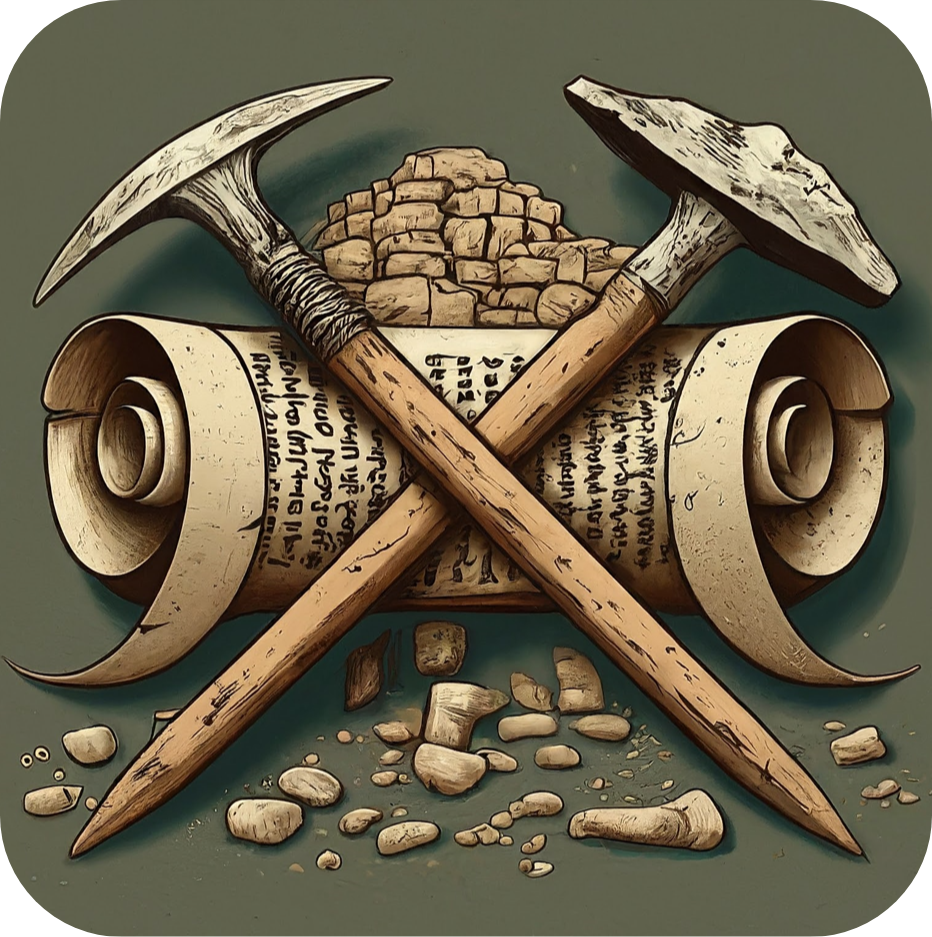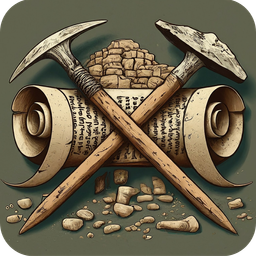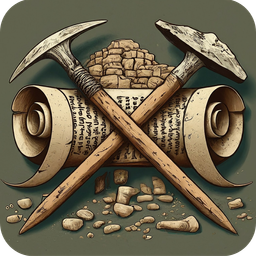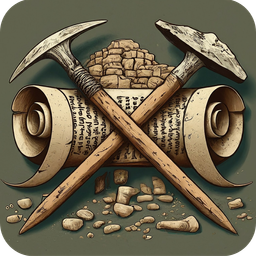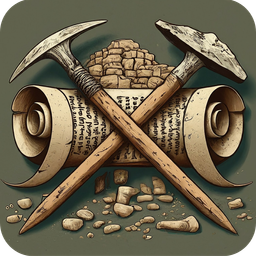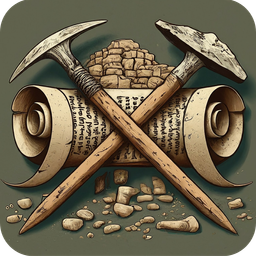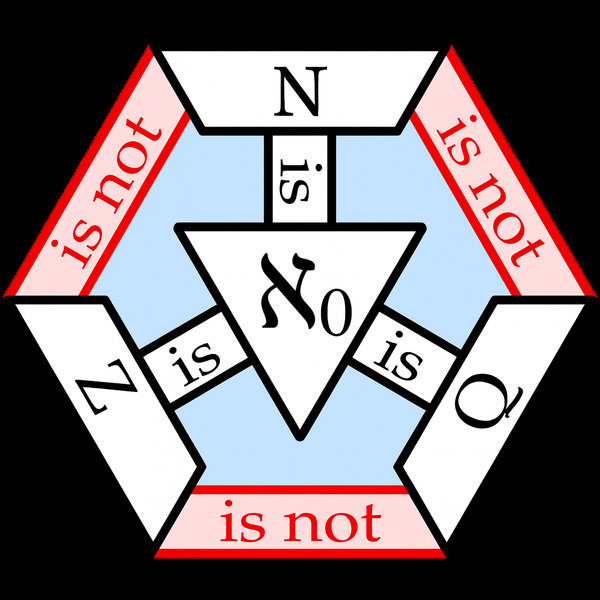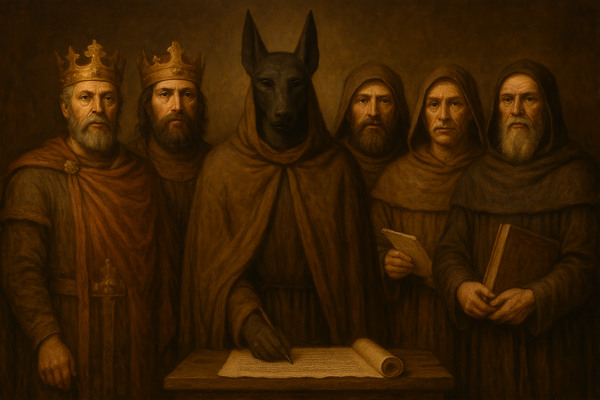The Greyhorn Pagans Podcast - Cryptids in the Bible and Church History
Below are citations and notes from my first episode on the Greyhorn Pagans Podcast (soon to be released), where we discussed the cryptid creatures in the Bible and church history.
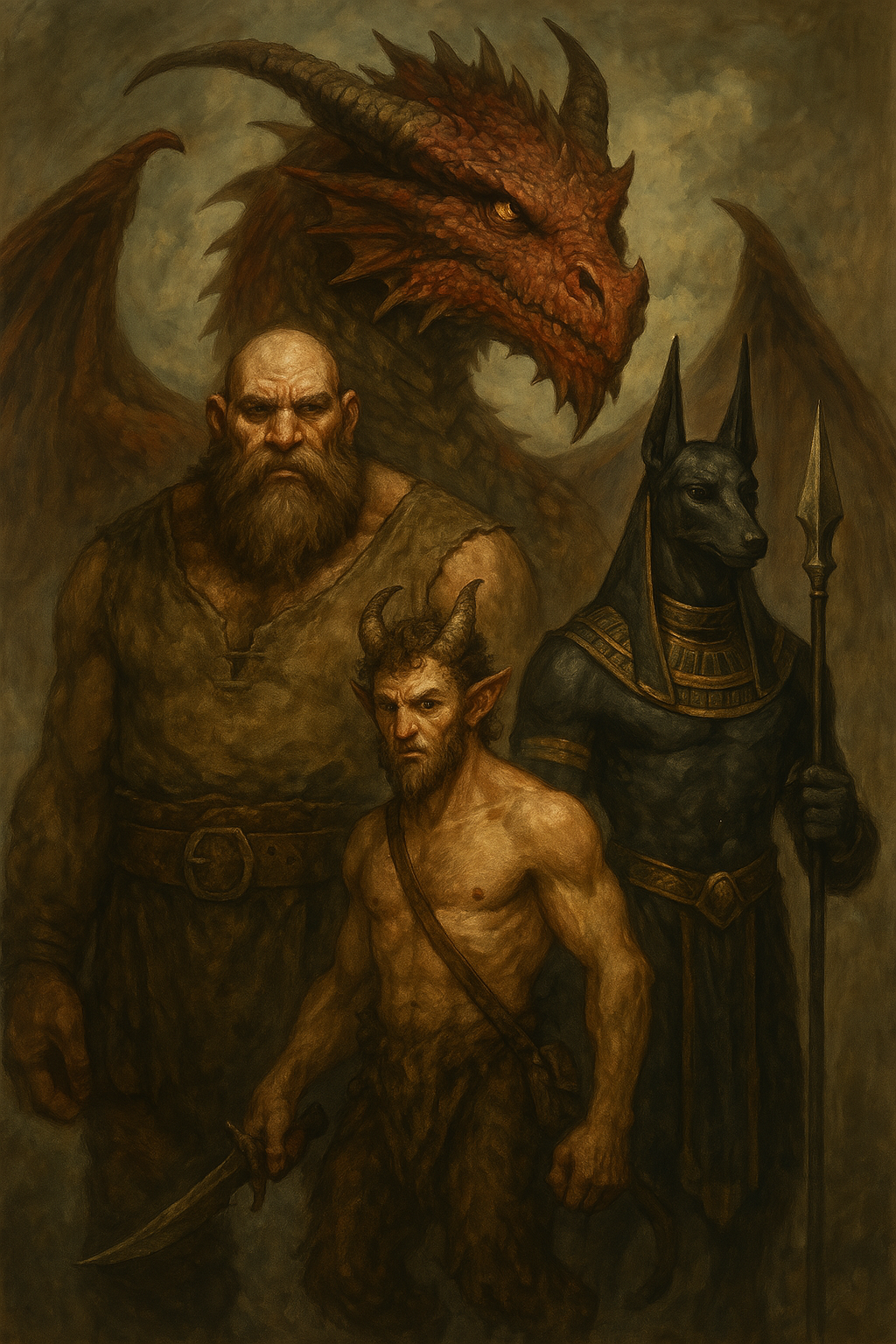
Below are citations and notes from my first episode on the Greyhorn Pagans Podcast, where we discussed the cryptid creatures in the Bible and church history, the biblical explanations for these creatures and the pagan gods, foundational agreements between the Bible and pagan beliefs, differences between them, and writings from Plato and Xenophon about God and Socrates, respectively. We were originally just going to discuss cryptids, but it turned into much more. I was encouraged by how I was welcomed on to this show and allowed to freely discuss my personal beliefs and the teachings of Scripture, beyond just historical information. It is my desire that more people would have respectful conversations from opposing stances and lovingly share our views. I do not endorse their views, and they do not endorse mine, but we still had a wonderful conversation and both learned from each other about what we believe and why. I hope the podcast episode and the sources below both inspire and challenge you in whatever way you need most.
Dogman/Cynocephali
City of Dog by Sam Ottewill-Soulsby, 2021
"One of the most celebrated pieces of writing to emerge from the Carolingian period is the letter written in the mid ninth century by Ratramnus, a monk of Corbie (d.c.868), to Rimbert (d.888), the future Archbishop of Bremen-Hamburg.58 Rimbert had written to Ratramnus from his mission among the pagans of Scandinavia, having heard reports of dog-headed men in the vicinity.59 The question that exercised Rimbert was whether the cynocephali “arose from the line of Adam or possess the souls of animals.”60 This was a significant point, because if they were the former and therefore human, efforts should be made to convert the cynocephali. Ratramnus’s eventual reply, which is the only document that survives from this apparent exchange, argued in favor of the humanity of the cynocephali. This conclusion was based on a number of different grounds, but the bulk of the letter is concerned with an analysis of the description of the society of the cynocephali provided by Rimbert. Like “Jerome,” Ratramnus centered his understanding of the cynocephali on an ethnographic account from eyewitnesses.
Ratramnus followed Augustine’s criterion for human status. He analyzed the elements that made up the cynocephali way of life looking for outward signs of rationality. Having found these signs of rationality, he concluded that they must be human."
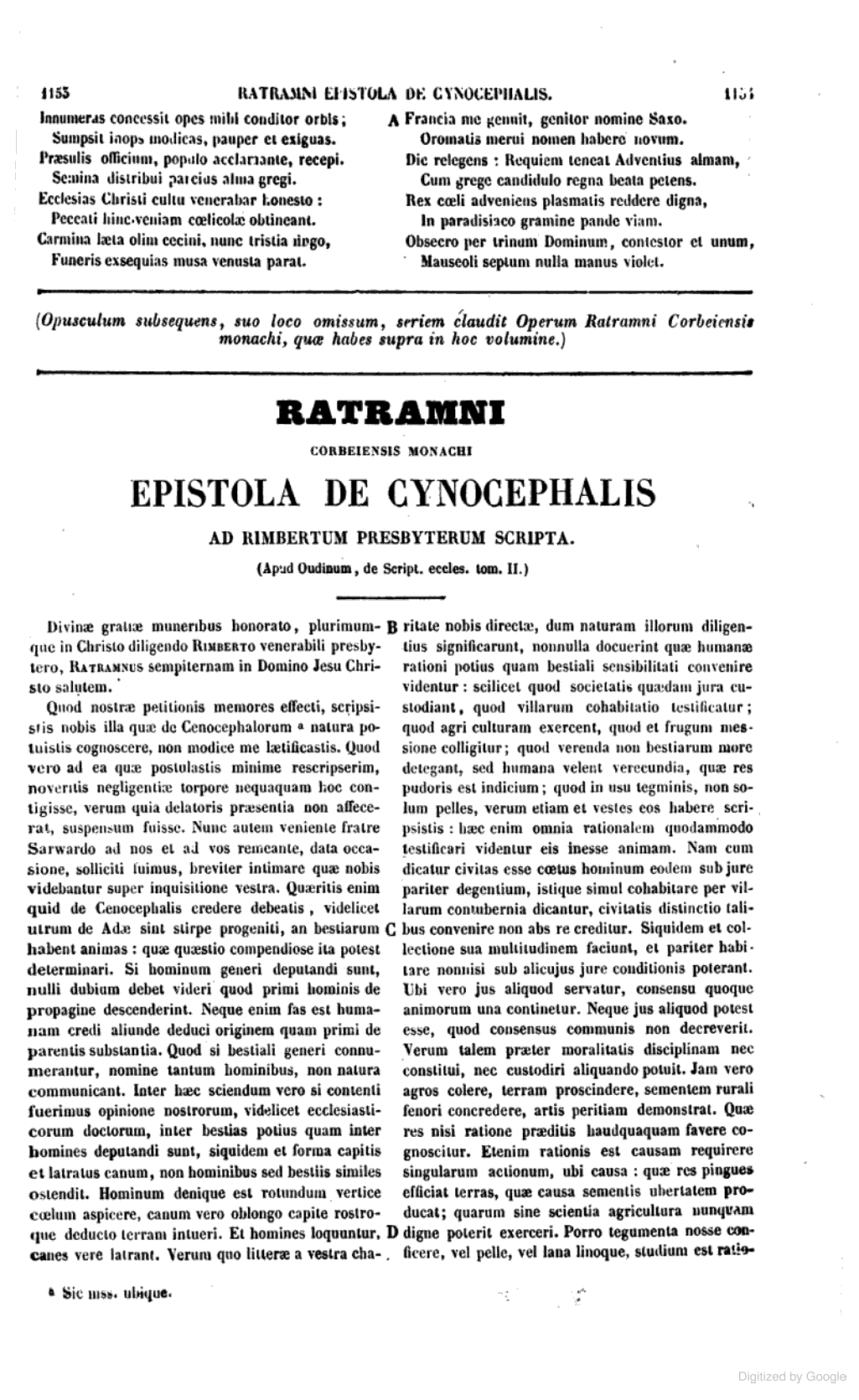
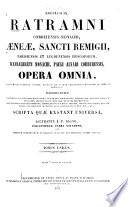
Augustine's writing on the Cynocephali and other monstrous races:
Articles with sources on Saint Christopher, Dogman, and the race of the Cynocephali:


Fallen angels copulated with human women and produced giants/demi-gods/monsters:
- The Bible
- Genesis 6:1-4
- Jude 1:6-7
- 2 Peter 2:4-6
- Peter uses the Greek word for Tartarus, connecting the story of Genesis 6 to Greek mythology. Josephus states directly that the giants of Genesis 6 resemble that of Greek traditions (Antiquities 1.3.1).
- Jewish Literature
- 1 Enoch, Chapter 7
- Jubilees, Chapter 7
- The Book of Giants, 4Q531 Frag. 2
- Josephus, Antiquities of the Jews, Book 1, Chapter 3, Section 1 & Book 5, Chapter 2, Section 3
- Philo, On the Giants, Chapter 2
- Early Church Fathers
- Justin Martyr, 2 Apologies, Chapter 5
- Irenaeus, Demonstration of the Apostolic Preaching, Section 18
- Tertullian, On the Veiling of Virgins, Chapter 7
- Commodianus, Instructions, Chapter 3
- Lactantius, Divine Institutes, Book 2, Chapter 15
- Sulpicius Severus, Chronicorum, Book 1, Chapter 2
- Project Eleazar Articles
- Podcasts
Cryptids and other Creatures in the Bible
- Giants
- Satyrs
- Leviticus 17:7; Isaiah 13:21, 34:14
- Centaurs or dog-men?
- Isaiah 34:14 (LXX)
- Dragons and Sea Serpents
- Sea Serpents
- Genesis 1:21
- Leviathan
- Job 3:8, 41; Psalm 74:14; Psalm 104:26; Isaiah 27:1
- Rehab
- Isaiah 51:9; Job 9:13, 26:12
- Dragons made by magic
- Exodus 7:12
- The Dragon of Yahweh
- Sea Serpents
- Locusts of the Bottomless Pit
- Revelation 9:7-10 (armored horse body, human head, long hair, lion teeth, tail of a scorpion, wings)
- Cherubim (biblical version of a sphinx)
- Genesis 3:24 (Eden, guardians)
- Exodus 25:20 (Ark of the covenant, wings)
- 1 Kings 6:23-28 (Yahweh's Temple)
- Psalm 18:10 (God rides a Cherub as it flies)
- Ezekiel 1:5-14
- Human likeness
- Four faces
- Human, Lion, Ox, Eagle
- Four wings
- Calf feet
- They sparkle like burnished bronze
- The appearance of fire (coal, torches, lightning)
- Revelation 4:6-10
- Six wings
- Four faces
- Praising God
- Seraphim
- Isaiah 6:2 (6 wings)
- Isaiah 6:6 (have hands)
- Isaiah 14:29 (flying fiery serpents)
According to the Bible, Pagan gods are fallen angels and spirits of dead Nephilim

1 Corinthians 8:5–6
For although there may be so-called gods in heaven or on earth—as indeed there are many “gods” and many “lords”— yet for us there is one God, the Father, from whom are all things and for whom we exist, and one Lord, Jesus Christ, through whom are all things and through whom we exist.
1 Corinthians 10:19–21
What do I imply then? That food offered to idols is anything, or that an idol is anything? No, I imply that what pagans sacrifice they offer to demons and not to God. I do not want you to be participants with demons. You cannot drink the cup of the Lord and the cup of demons. You cannot partake of the table of the Lord and the table of demons.
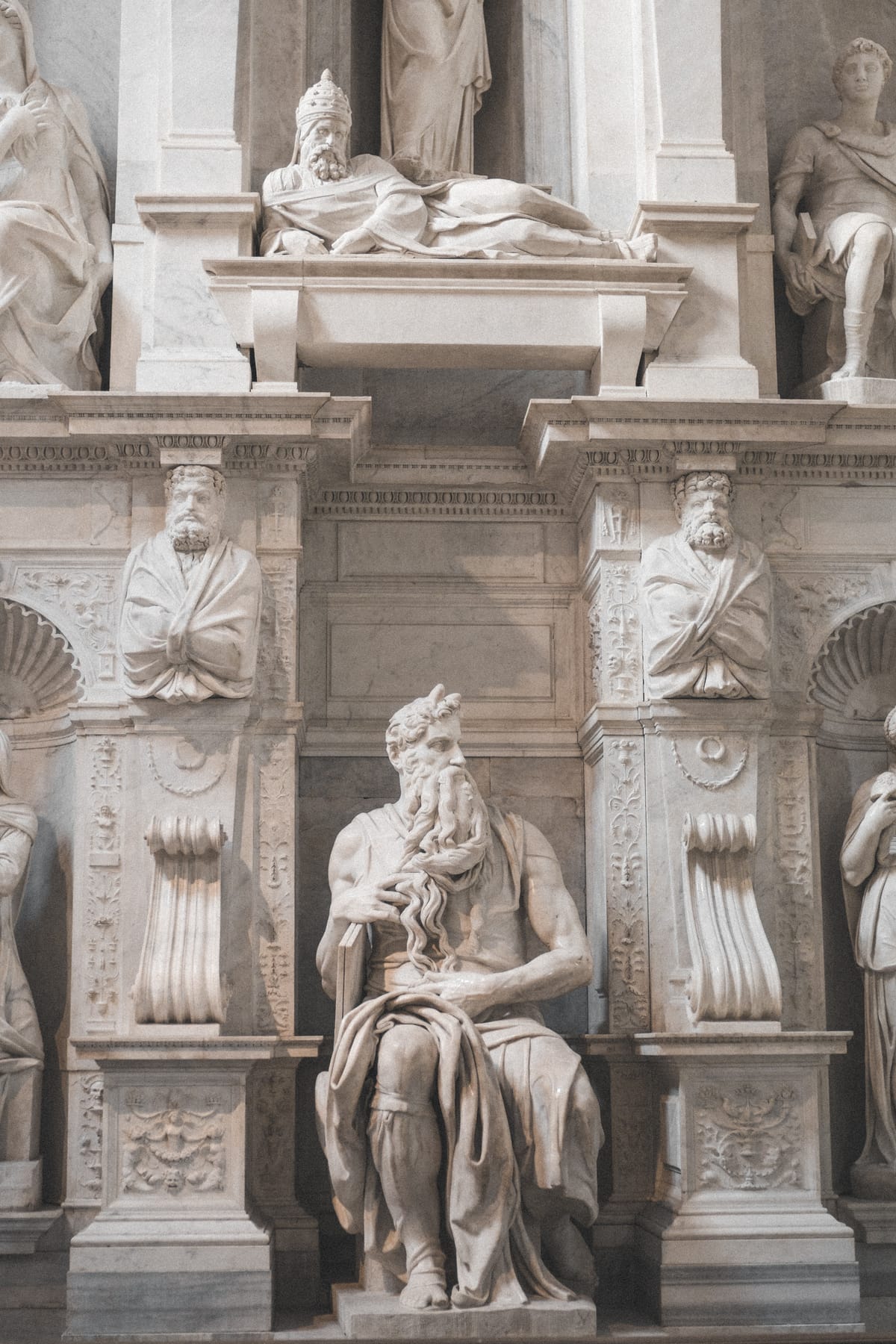

It just so happens that Plato describes the world being allotted to the gods multiple times in his Socratic dialog of Timaeus and Critias.
In the days of old, the gods had the whole earth distributed among them by allotment.
Now different gods had their allotments in different places which they set in order.
Plato, Timaeus, Critias, Cleitophon, Menexenus, Epistles: English Text, ed. G. P. Goold, trans. R. G. Bury, The Loeb Classical Library (Cambridge, MA; London, England: Harvard University Press, 1929), 279–281.
Like as we previously stated concerning the allotments of the Gods, that they portioned out the whole earth, here into larger allotments and there into smaller, and provided for themselves [C] shrines and sacrifices, even so Poseidon took for his allotment the island of Atlantis and settled therein the children whom he had begotten of a mortal woman in a region of the island of the following description.
Deuteronomy 32:8–9
8 When the Most High gave to the nations their inheritance,
when he divided mankind,
he fixed the borders of the peoples
according to the number of the sons of God.
9 But the Lord’s portion is his people,
Jacob his allotted heritage.
Psalm 82:1-8
1 God has taken his place in the divine council;
in the midst of the gods he holds judgment:
2 “How long will you judge unjustly
and show partiality to the wicked? Selah
3 Give justice to the weak and the fatherless;
maintain the right of the afflicted and the destitute.
4 Rescue the weak and the needy;
deliver them from the hand of the wicked.”
5 They have neither knowledge nor understanding,
they walk about in darkness;
all the foundations of the earth are shaken.
6 I said, “You are gods,
sons of the Most High, all of you;
7 nevertheless, like men you shall die,
and fall like any prince.”
8 Arise, O God, judge the earth;
for you shall inherit all the nations!
Acts 17:22–31
22 So Paul, standing in the midst of the Areopagus, said: “Men of Athens, I perceive that in every way you are very religious. 23 For as I passed along and observed the objects of your worship, I found also an altar with this inscription: ‘To the unknown god.’ What therefore you worship as unknown, this I proclaim to you. 24 The God who made the world and everything in it, being Lord of heaven and earth, does not live in temples made by man, 25 nor is he served by human hands, as though he needed anything, since he himself gives to all mankind life and breath and everything. 26 And he made from one man every nation of mankind to live on all the face of the earth, having determined allotted periods and the boundaries of their dwelling place, 27 that they should seek God, and perhaps feel their way toward him and find him. Yet he is actually not far from each one of us, 28 for
“ ‘In him we live and move and have our being’;
as even some of your own poets have said,
“ ‘For we are indeed his offspring.’
29 Being then God’s offspring, we ought not to think that the divine being is like gold or silver or stone, an image formed by the art and imagination of man. 30 The times of ignorance God overlooked, but now he commands all people everywhere to repent, 31 because he has fixed a day on which he will judge the world in righteousness by a man whom he has appointed; and of this he has given assurance to all by raising him from the dead.”
2 Kings 18:33
Has any of the gods of the nations ever delivered his land out of the hand of the king of Assyria?
Isaiah 36:18
Beware lest Hezekiah mislead you by saying, “The LORD will deliver us.” Has any of the gods of the nations delivered his land out of the hand of the king of Assyria?
2 Kings 19:12–18
Have the gods of the nations delivered them, the nations that my fathers destroyed, Gozan, Haran, Rezeph, and the people of Eden who were in Telassar?
2 Chronicles 32:17
And he wrote letters to cast contempt on the LORD, the God of Israel, and to speak against him, saying, “Like the gods of the nations of the lands who have not delivered their people from my hands, so the God of Hezekiah will not deliver his people from my hand.”
Deuteronomy 29:18
Beware lest there be among you a man or woman or clan or tribe whose heart is turning away today from the LORD our God to go and serve the gods of those nations. Beware lest there be among you a root bearing poisonous and bitter fruit,
2 Chronicles 32:14
Who among all the gods of those nations that my fathers devoted to destruction was able to deliver his people from my hand, that your God should be able to deliver you from my hand?
Socrates and Sorcery
In the following excerpt from Xenophon’s account of Socrates, we learn that Socrates considered Homer’s writings to be nothing short of historical and a source of practical spells and incantations. We also learn that politicians used spells and enchanted amulets to win over the citizens of cities. The normality with which these things are said is striking to the modern reader that lacks the context of the ancient world, where magic was thought of more as a mysterious science than a fantasy.
Xenophon, Memorabilia, Book 2
Soc. There are certain incantations, we are told, which those who know them have only to utter, and they can make friends of whom they list; and there are certain philtres also which those who have the secret of them may administer to whom they like and win their love.
Cri. From what source shall we learn them?
Soc. You need not go farther than Homer to learn that which the Sirens sang to Odysseus, (9) the first words of which run, I think, as follows:
Hither, come hither, thou famous man, Odysseus, great glory of the
Achaeans!
Cri. And did the magic words of this spell serve for all men alike? Had the Sirens only to utter this one incantation, and was every listener constrained to stay?
Soc. No; this was the incantation reserved for souls athirst for fame, of virtue emulous.
Cri. Which is as much as to say, we must suit the incantation to the listener, so that when he hears the words he shall not think that the enchanter is laughing at him in his sleeve. I cannot certainly conceive a method better calculated to excite hatred and repulsion than to go to some one who knows that he is small and ugly and a weakling, and to breathe in his ears the flattering tale that he is beautiful and tall and stalwart. But do you know any other love-charms, Socrates?
Soc. I cannot say that I do; but I have heard that Pericles was skilled in not a few, which he poured into the ear of our city and won her love.
Cri. And how did Themistocles win our city's love?
Soc. Ah, that was not by incantation at all. What he did was to encircle our city with an amulet of saving virtue.
Here we find that Socrates himself knew and used incantations and love-charms.
Xenophon, Memorabilia, Book 3
Soc. Seek and you will find means, if you truly need me.
Theod. Come then in hither and visit me often.
And Socrates, poking sly fun at his own lack of business occupation, answered: Nay, Theodote, leisure is not a commodity in which I largely deal. I have a hundred affairs of my own too, private or public, to occupy me; and then there are my lady-loves, my dear friends, who will not suffer me day or night to leave them, for ever studying to learn love-charms and incantations at my lips.
Theod. Why, are you really versed in those things, Socrates?
Soc. Of course, or else how is it, do you suppose, that Apollodorus (16) here and Antisthenes never leave me; or why have Cebes and Simmias come all the way from Thebes to stay with me? Be assured these things cannot happen without diverse love-charms and incantations and magic wheels.
